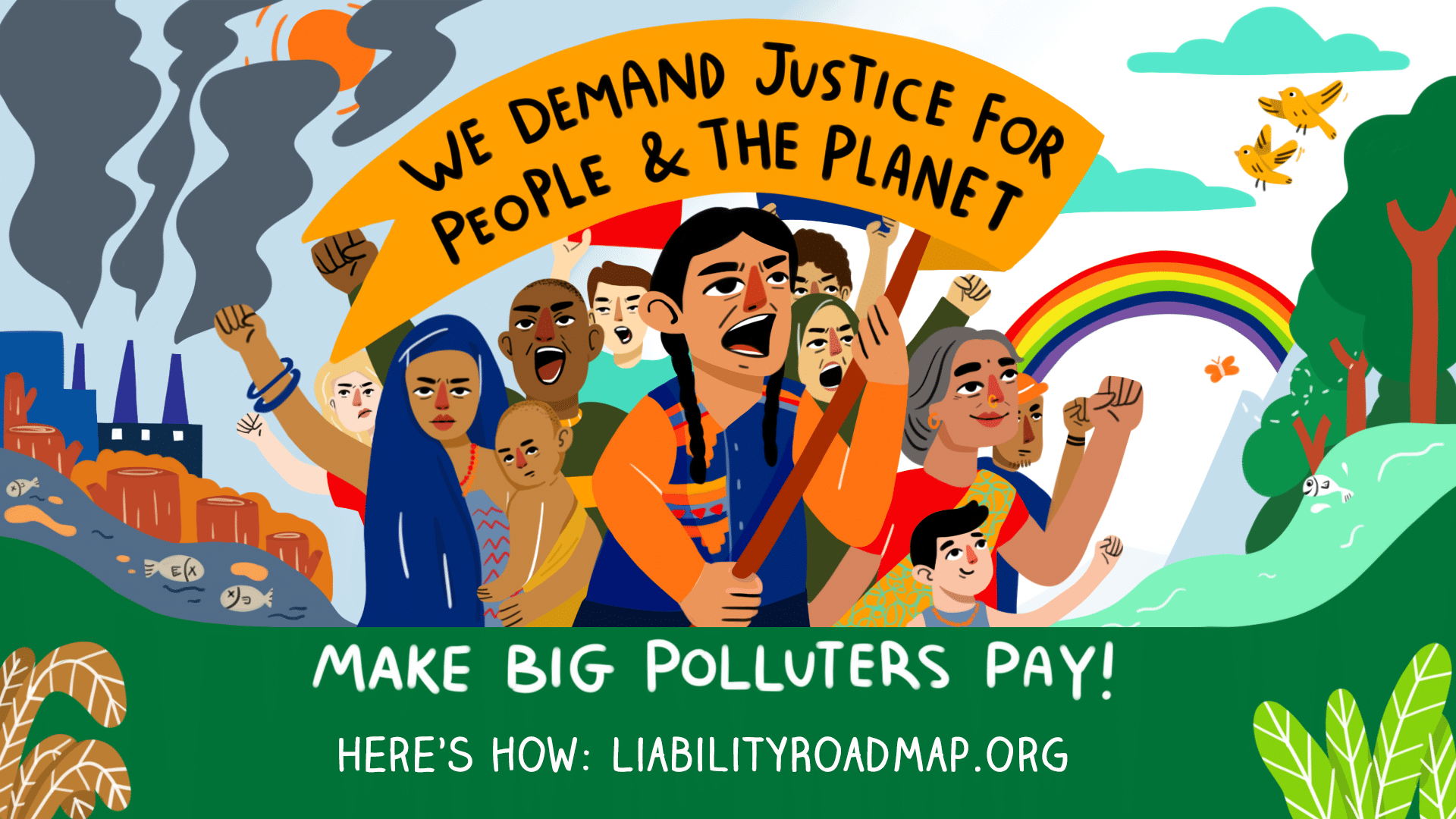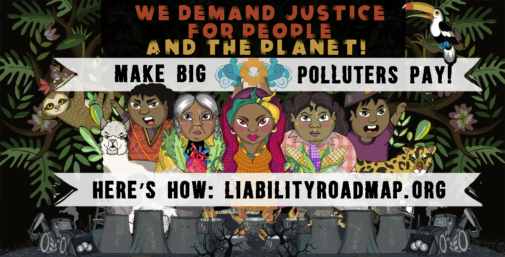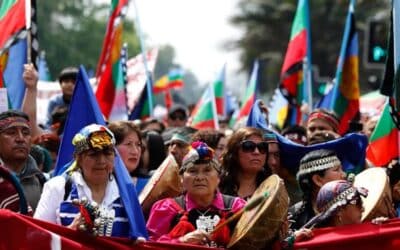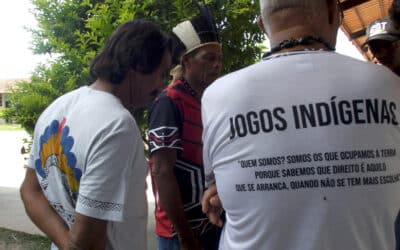Aujourd’hui, une coalition mondiale procède à la publication d’une « feuille de route » pour tenir responsable les grands pollueurs. Il s’agit d’un outil unique en son genre décrivant comment les décideurs politiques locaux et internationaux, y compris les responsables gouvernementaux, peuvent tenir les industries polluantes responsables des impacts climatiques qu’elles causent sciemment, tout en libérant le financement climatique nécessaire pour faire face à la crise climatique et mettre en œuvre des solutions.
Continuez à lire en anglais…
This roadmap, released just one week before UN climate week [and days after Portuguese young people announced they’re suing 33 countries over inaction on climate change,] is the next stage in the global campaign to Make Big Polluters Pay.
Last September, international climate organizations launched a global call for Big Polluter liability at the UN Secretary General’s Climate Action Summit in New York City. And at COP25 in Madrid, the demands hundreds of thousands of people to make Big Polluters pay were delivered to government delegates. Organizations and signatories echoing this call hail from around 70 countries including Bolivia, The Philippines, and Nigeria.
Liability has taken on new importance amid the COVID-19 pandemic and unprecedented climate disasters. Many Big Polluters are in large part responsible for the multi-faceted crises people are facing and are still attempting to profit from fueling it – demanding government bailouts and rolling out PR schemes that position themselves as solutions.
Fossil fuel and other polluting industry liability is a growing area of focus for climate experts, activists, academics and governments alike as the industry’s long history of denial and the link between industry emissions and climate impacts becomes more evidenced. From U.S. states to Vanuatu to Peru, elected officials and people are exploring holding polluters like the fossil fuel industry liable for its long history of deceit and environmental destruction.
Earlier this year, the expansion of Heathrow Airport was successfully stopped after civil society argued it was a violation of the UK government’s Paris Agreement commitments. The Philippines’ commission on human rights has concluded that the fossil fuel industry can be held legally responsible for their role in climate change. Indian fisherman challenging the International Finance Corporation (IFC) secured a precedent-setting judgement in the U.S. Supreme Court in 2019.
“The facade of promoting Nature based Solutions, Net Zero and offsetting is a clear pointer that the polluting industries continue to subvert their immediate obligation to reduce emissions. The New Normal is besieged with massive bail outs to the fossil fuel and aviation industries with the agri-business surviving merrily on perverse subsidies; denying the fact they are liable for the climate crisis and rising GHG emissions, deforestation, destruction of livelihoods and food security of billions.
A bottom-up global Peoples’ Movement demanding liability from the rogue corporations and climate denier governments would be a Peoples Pathway that continues to demand climate justice recognising and respecting equity, gender equality and the rights of the Indigenous Peoples, Local Communities, Peasants, Fisherfolks and Workers,” said Souparna Lahiri, Climate campaigner and advisor, Global Forest Coalition
“Scientific evidence is clear, the prevailing agribusiness industry is one of the major drivers of climate change and eco-destruction. It is heavily reliant on fossil fuels, extractivism, agrochemicals, deforestation, and land-use changes. More importantly, this harmful industry is directly affecting the enjoyment of a number of human rights – in particular the human right to adequate food and nutrition. Big polluters have to be held liable for their ‘dirty’ agribusiness in order to restore essential eco-system services, heal the planet and protect present and future generations’ rights,” said Astrud Beringer, FIAN International
« The same people at the front line of the health, food and economic crises are the same people at the front line of the climate crisis. Transnational corporations have benefited from a broken system based in structural violence that repeatedly harms Black, Indigenous, peasant, and local communities. These systems of oppression only benefit corporations and the elites of the world. But, there is not a planet B. As peoples rise against oppression and racism, we must also rise against Big Polluters that are destroying our lives, our present, our future. This tool will bring us one step closer to making Big Polluters pay and thus, closer to justice. » – Nathalie Regifo Alvarez, Latin America Climate Campaign Director, Corporate Accountability





